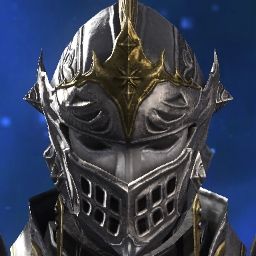-
01-09-2023 03:05 AM #7471Player

- Join Date
- Apr 2020
- Location
- Amaurot
- Posts
- 1,128
- Character
- Marel Nobelle
- World
- Midgardsormr
- Main Class
- Dark Knight Lv 100
(8)
-
01-09-2023 03:21 AM #7472
And I can easily say the latter we truly believing anyone would want to self-sacrifice to themselves in the hopes of restoring their world. But then again, that attitude was apparently the norm in Ancient society and with what is shown to us with Hermes, not every Ancient held the same self-sacrificing values as his bretheren. And theres still the fact that this process still involved non-Amaroutines, there we of course more people who lived outside of their realm.
Not trying to uplift the whole sundering plan since that was also as equally reckless and risky. But my point is that in those crucial moments, those were the options that was afforded to the people, and gambling on either of them no matter what is going to be equally seen as reckless, but it was also a terrible live or die situation with the Final Days.
And also think about it, Venat's supporters wouldve had to know that the plan was to sunder since that wouldve been the plan to create the Hydaelyn primal. Both sides knew the risks of their plans.(5)
-
01-09-2023 03:35 AM #7473
We don't know that! IIRC, they were aware the plan was the Sunder Zodiark because they were aware that the world still required his protection, but they didn't want him to be an active influence upon it, either. It's still ambiguous if they were aware that Sundering the entire world itself and every life upon it was also part of the package. What Venat's short story highlights, however, is that she made the deliberate decision to tell others as little as possible about what she knew. With that in mind, while both sides knew there were "risks," saying that there was equivalent knowledge of both sides of the risks when Venat had direct knowledge of the future and what would happen in both the Final Days and the Hydaelyn vs Zodiark conflict - whereas the rest of Ancient society was flying entirely blind and scrambling to do whatever they could without understanding why it was happening - does not really ring true.
As far as the rest of your post, I've always held that while I have my own subjective opinions on the exact nuances of the conflict and the people involved (Venat's logic is a bit more moon logic to me as an individual than the Ascians', though I don't question that she genuinely believed what she did), I'm more than happy to agree to a common ground in general that the Ascians and Hydaelyn can be understood to be roughly morally equivalent to each other. Both committed absolutely heinous atrocities and were willing to sacrifice untold amounts of unwilling victims for their own visions of the greater good, for the sake of the world.
Also, I apologize, but I'm having genuine trouble parsing what you're saying about the self-sacrifice...?(11)Last edited by Brinne; 01-09-2023 at 03:52 AM.
-
01-09-2023 03:49 AM #7474Player

- Join Date
- Jul 2020
- Posts
- 1,072
- Character
- Selene Halflight
- World
- Brynhildr
- Main Class
- Black Mage Lv 100
The ancients in the spotlight knew how the rest would react to the information.
Thus a Balanced Game was set.
<course it was never good, or bad since it's part of what nature is.>
So the Trust is held for those who can bear the truth.
a guaranteed outcome, or a potential outcome.[both]<that depends on which one you see it as. The ancients in the spotlight knew, that their methods couldn't have brought about the resolution. hindsight obviously>[whilst the other half knew what would occur 100%, but didn't know about the success, despite all that has occur all but Certified it's occurrence]
What's right or wrong has no place in it.
it was a complete end, or a potential delayed chance. (in the end it was no choice at all)
we arent the ancients in memories, but we can understand that.
one reacts to the world as if said occurrences are they only thing they knew.<memory wipe>
whilst the other acted with restraints, knowing that speaking freely could bring about the end of everything. thus had no real choice except for the select few to confide in.
it's open for you to interpret, we do not forget the losses, between nothing left, or struggling/striving scraps.
there was only one.(0)
-
01-09-2023 04:45 AM #7475Player

- Join Date
- Aug 2016
- Location
- Amaurot
- Posts
- 275
- Character
- Teraq Moks
- World
- Behemoth
- Main Class
- Ninja Lv 90
I'm noting that in the everliving (long, tired sigh) discussion around the largely irrelevant subjects of the third sacrifice, mention is sometimes made of "non-Amaurotines" or "non-Ancients", ascribing the reasoning behind the sacrifices only to the Amaurotines for some reason.
We do not know what happened outside of Amaurot. We do know there were other cities and some farmers living on some volcanic island, of course. But the implication often is that the culture we see portrayed in game is only Amaurotine. The thing is, what little we know of the world back then implies a large number of people was of the same culture. The Watcher's narration in his short story says that the black robes and white mask were worn by "most of the citizenry" at the time, which is also the wording used in Japanese as far as I can tell. This is corroborated by Livingway telling you "the Watcher told us all humans wore the same kind of robes in his time" to justify the little dress-up fiasco.
Would it be weird for a single culture to have gone global? I don't know, honestly. It is rather obvious Ancients' peculiar biology, both in terms of longevity and powers, resulted in them building a society, culture and interpersonal relationships that are very different from ours on multiple levels, and I don't feel confident enough to say how this would impact the spread of a single culture as the accepted norm.
In a more meta context though, I will point out that – much like the argument revolving around the third sacrifice being comprised of sapient or human-like beings – the writing team never saw fit to tell us more on this point than what we have in game. Hence, when it is recounted, multiple times, that half of "humanity" willingly sacrificed themselves, it does not make much logical sense to assume that "humanity" actually means something else here. It might be that, by the time Amaurot itself was hit, the rest of humanity was simply dead, or that the Convocation somehow had the means to communicate with every human on the planet simultaneously to inform them of Zodiark's summoning (I am 100% picturing the DBZ scene of everyone giving Goku part of their energy for the final genkidama here), or that the survivors had somehow gathered in the largest city around… though again there is nothing conclusive on that.
Applying the same logic to the third sacrifice, because god this argument will never leave these discussions alone, we are never shown nor told about any species capable of building a civilization at the time of the unsundered world, beside one single instance of conjecture around an elephant creation that is implied to grow into what became the Matanga as we know them 12,000 years later (the observer mentioning the concept should be revised to make it "more intelligent" does not mean much to me when the thing was just running around like a headless chicken, frankly). It is similarly never emphasized by anyone recounting the rationale for the third sacrifice that never happened, not even by Venat herself or her faction, even though it would have been a very convincing argument – which is why some people insist on it being true when there is nothing conclusive on the matter in game or in interviews of the writers. Given how much care the Ancients treated the planet, its ecosystem and its natural cycle of life and death with, it has never seemed farfetched to me that a sacrifice of "just" wildlife would be controversial enough for a number of them. The semantic argument around "inheriting the star" is similarly a bit of a non-starter to me; it isn't exactly out of the realm of imagination to use poetic words like these to speak of nature reclaiming the Earth after human civilization is gone – see Chernobyl or most post-apocalyptic settings.
Sometimes a cigar is just a cigar. If the writers never implied a thing, then maybe we aren't even supposed to consider the thing. You're free to think it diminishes what the story could have been or its impact, because god knows it's what we've been doing in here about how Endwalker presents Venat, Hermes and the Ancients. I think we here all understand the story and the aesop Endwalker wanted to tell. Let's just say some of us think it did not do a great job of it, even putting aside varied personal tastes about how morally grey the conflict should have been in the end. (tl;dr: this thread)
Edit: I wanted to address Hermes wrt to sacrifices in particular: we're never told that Fandaniel disagreed with the whole Zodiark thing. Even though, by all means, the character I watched have an emotional meltdown over the concept of death and suicide every other scene in Elpis should have. It is reasonable to think he might have been one of the members Elidibus speaks about, after the SoS trial, when recounting that even the Convocation was divided over the third sacrifice, but ultimately it appears none of this mattered enough to be mentioned in retellings as anything other than "The Convocation [unspecified]". Perhaps he did grow to accept the sacrifices were worth it. Who knows? There is such a disconnect between what we see of Hermes and the world leader we know he eventually became. I seriously wish his short story had touched upon his tenure as Fandaniel, but I suppose he will just continue being this very awkwardly-written character to me.(13)Last edited by Teraq; 01-09-2023 at 04:57 AM. Reason: ah my favorite character! :)
-
01-09-2023 05:45 AM #7476Player

- Join Date
- Jun 2022
- Location
- We are from the Garlemalding
- Posts
- 166
- Character
- Graeham Graisse
- World
- Balmung
- Main Class
- Black Mage Lv 87
No Briny do not do it. The left of the wing and the right of the wing it can not live together. Is like eating the delicious cheesieburger with the lowcal vegita. We stand on the firm. No Shadow God is the right and Venar is the left. Left mean wrong because left is not right. Is what guild always say. Stay the course to correct the course and we bring back No Shadow God in XPac 70. If Briny is choosing the fence guild can not sponsor it.
No Tariq. The wild live is not what the king eating it has the danger. Is only the farm live for the eat. If making the dinner for the Zod beast can not give it the lion. Lion is tough meat and Zod is not happy. Must use the farming chicken to make the chicken nugget. Also must be using the farming cow to make the cheese and the meat for the delicious cheesieburger. Vice king must know this. Sacrifice to make No Shadow God mustard race must be using hq meat.
No you do not understand. It is Xanatos Gambit like on the teach writer site tvtrope. No Shadow God is smart because is mustard race. Can see all possible like the chessman. Is why predict that when sacrifice to the Zod can also use the Zod to bring back all undead chara. You are new to tread and just learn so we teach.
Sacrifice 5 chara to make a wish.
Sacrifice 5 chara to bring 10 undead chara back.
Is the genius plan. You looking at the one and you say it is too cost. I do not want to do this. But you look at the two and you know can keep bringing it back. So is free. Can only think like the Solus King if study hard in the school.
You are the good person we will teach you trick of the forum ruler. Remember to joining the link and support the guild.
5C9FyGaM(2)
~You may defeat us but our principal is in violet. Indivisible.~
~God King Solus and the Princess Svelte Lana~
-
01-09-2023 11:30 AM #7477
-
01-09-2023 12:37 PM #7478
The problem I have is that the logic the game uses to act like there was only one good choice in the matter is...flimsy at best.
Discreetly warning the people about a disaster is more likely to reduce panic when it arrives, not increase it...and that's precisely what the Scions do the moment they return from the moon, and we're also certain to provide an update about the turning business as soon we gain insight in Thavnair. Natural disasters were simply accepted as a part of the world in the ancient times and the Convocation were noted as being practiced in handling such matters in one of the short stories.
As for Hermes...he was non-essential because he couldn't even pin down that dynamis was causing the Final Days and by Elidibus' own admittance their understanding of the Final Days was the same as our own.(15)Last edited by KageTokage; 01-09-2023 at 12:41 PM.
-
01-10-2023 02:27 AM #7479Player

- Join Date
- Jul 2015
- Posts
- 1,253
- Character
- Ashe Sinclair
- World
- Phoenix
- Main Class
- Thaumaturge Lv 60
I've by and large left the game at this point, but my sub has a few more days until it runs dry so I feel obligated to interject that the Amaurotines did not sacrifice themselves believing they would be resurrected. Hythlodaeus tells us (once directly, another implied) that this was a plan later conceived of by the Convocation once stability and life had returned to the world:
The cycle of life had begun anew, and we reconsidered the means by which we might protect it.
The Convocation decided thus: we would nurture our world until it was bursting with vitality. Then, when the time was right, we would offer some portion of its living energy to Zodiark...
In return, He would restore to us those brethren whose souls had fed His strength, and together we would resume our role as stewards.It doesn't exactly sound like they were in on these "plots" prior to Zodiark's summoning. I also highly doubt they would make a point of having Emet-Selch emphasise the selflessness and nobility of their sacrifice had it been done under the assumption it was temporary - given that it would completely undermine any and all emotional impact they clearly wanted the end of ShB to have on its audience.We remember in vivid detail the events leading to our purgatory...
The plans and plots for our resurrection, Hydaelyn's intervention, and Zodiark's - and the star's - final fate.
But another day, another reason to drag the Ancients and strip them of any humanity that might make the arguments against them uncomfortably precarious and hypocritical.(14)
-
01-10-2023 03:36 AM #7480
Sorry to see you go, Lunaxia, but of course, I understand.
As far as the sacrifices go, my genuine impression is that the intended "vibe" - once again, the game is, thus far, absolutely unwavering on this point - is that that self-sacrifice of the Amaurotines is meant to be understood as something absolutely noble, breathtakingly heroic, and as Alphinaud's stunned silence reflects, something we understand is a level of "goodness" beyond modern humanity. As far as the precise mechanics, if you want to shoot the breeze about that, I would guess - because this is another thing I don't think the writers actually sat down and mapped out concretely - that while there were probably some mutterings at the time of the sacrifice about maybe, hopefully, finding a way to save the sacrifices someday. It's clear that they were committed sorrowfully, understanding they were being sent to a horrible fate, and Zodiark was designed to keep their souls preserved, after all.
However, everything about this plan was also completely unprecedented, untested, and hypothetical to the Ancients, and they weren't even sure that the aether shield would work at all (since, again, they were completely flying blind about the nature of the Final Days) - so they had no idea of knowing if there actually would be a viable possibility of saving the sacrifices after the fact, and those people knew that at best they had a huge, guilt-ridden uncertainty about those chances when they marched to the gallows. From Shade Hythlodaeus's description, it sounds like once everything had settled down and the planet wasn't actively dying, they finally sat down and got their heads together to figure out how to move forward and what their options might actually be from there.
That would be my best guess on the general flow of things - and I don't think it in any way undermines the nobility of those sacrifices. As I said before, the attempts to do so seem at best, to me, extremely cynical and probably a bit mean-spirited. We're not gonna give the Ancients any credit for goodness, even in a breathtaking gesture of selfless benevolence that every living creature in the world owes their existence to, I say! None! They get nothing!
As an aside, I realize people in this thead are asking this mostly rhetorically, but the game does provide a real, concrete answer to "why didn't Venat say anything" beyond her unconvincing mumbling about Hermes: she says straight out after said mumbling that her chosen course is not to stop Hermes's test, but to see mankind confront and pass it, to "prove" the strength and worth of life. The writing wants us to understand this as a brave and noble course, not a callous one. Of course, as far as I personally view it, I think another poster a while back framed it best when they described it as her choosing to throw away and otherwise gamble millions and billions of unknowing, unwilling lives she had no right to in a "philosophical pissing contest" with Hermes.
Venat's love of Life is true, genuine and zealous. Even her short story makes sure to highlight this, in her sheer giddiness about her research thesis about the inevitability of Life, if Existence. She just views Life as a holistic and abstract thing, as she described in her changed worldview in her speech on the bridge, and as a "force of nature" (per our Azem) would - and Meteion's report suggesting that Life is worthless, that the universe was empty, that an outcome was possible that people stopped valuing it properly (this, I'd guess, if I was trying to actually make a good faith effort to make heads or tails of her character, is why the Nibirun upset her so much more than any other possible Dead End described) truly disturbed her. If billions of tiny individual lives must suffer, die (and know?) to prove the overall value of Life as a unit and a concept, prove Meteion wrong, then so be it.
EDIT: Again, I would presume this is where the disconnect between the writers and the players chiefly lies. From the writers' perspective, this was a well-intended and sweet, if somewhat naive, message to the players merely using the game, world, and characters as a vehicle to tell us: "Look! Life is worth it, even if things are hard! Don't believe someone if they tell you to just give up and die! Let's affirm that life is worth it together!" However, the second you move from "this is a message from the devs to the players" and into the actual in-universe setting and logic, what the characters themselves are doing to, from their perspective, other living and breathing people, it becomes absolutely horrifying on several levels and really difficult for me to not describe as basically flat-out evil, if I'm being blunt.(12)Last edited by Brinne; 01-10-2023 at 03:58 AM.



 Reply With Quote
Reply With Quote












